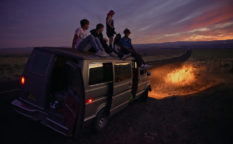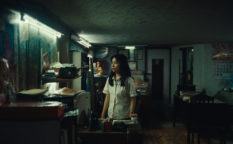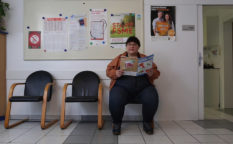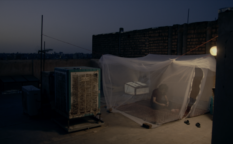Review: The Exit of the Trains (2020)
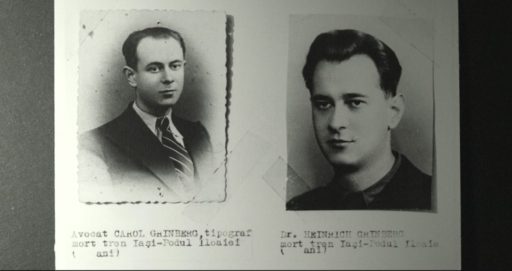
It is a rare occasion that a single filmmaker has two separate films in Berlinale shown in the same section. This year it is the case with the Romanian filmmaker Radu Jude whose two documentaries, Uppercase Print (reviewed here) and The Exit of the Trains (the latter co-directed with Adrian Cioflanca, a non-professional who appeared as an actor / extra in Jude’s I Do Not Care if We Go Down in History as Barbarians). The thing worth noting here is that Jude is not a documentarian per se, but both of the films are documentaries that differ in style and theme.
The Exit of the Trains is almost three hours long, assembled chronicle of Iasi Pogrom in late June of 1941, when more than 13.000 Jews were killed in and near the capital of the Romanian region of Moldova, once known for its Jewish population. The Pogrom took place in the window of time between the 26th and the 29th of June, with Jewish population, predominantly male, being rounded up in the courtyard of Iasi police station by the Romanian army, gendarmes, angry mobs of civilians and the assisting German troops, beaten up, interrogated, shot on spot or put on so-called death trains with sealed cattle wagons and dispatched to the directions of Calarasi and Poldu Ioalaei. Those who survived the whole ordeal were put to concentration and labour camps, where they were killed by hard labour and famine.
The Exit of the Trains is their story as told by those who outlived them, usually the family members, the friends and the neighbours of the killed. The film itself is divided asymmetrically in two parts, where the first, about two and a half hour-long, provides us with the stories about the deceased and how they died, told in the form of voice-over narration of officially filed documents set against their photos from the official documents and private archive.
However, there are two deviations due to occasional lack of material: some of the verbal testimonies are not illustrated by the photos because there were probably none left, while some photos were not accompanied by narration since there were probably no surviving family members, friends or neighbours. The second, shorter part of this diptych provides us with still photographs of the Pogrom itself, arranged in a chronological order.
There is no doubt that The Exit of the Trains is a significant work, but the question that arises is what part of it could be considered cinema. Simply put, it belongs in a museum as a part of the permanent exhibition rather than in movie theatre. The historiography part of it is impeccable, as it in one way or another, name-checks all of the deceased (it would be too much for a single person to count), but it pretty much cancels any chance to intervene with the material. There was no other way to do it, no mistakes could possibly be made, no decision other than the choice of the photo that would be the illustration of the particular testimony (given that there were more photographs preserved in some cases) was available once Jude and Cioflanca agreed on their methodology.
Another circumstance that cements The Exit of the Trains as “it is what it is”-type of a documentary is that Jude himself has already done the similar thing with his first documentary The Dead Nation (2017) that was based on Emil Dorian’s memoire “The Quality of Witness”, with the narration of the excerpts set against the selection of photos. It felt quite fresh and cinematic back then.
The Exit of the Trains earns its significance in other aspects than artistic. It is a thorough and deeply ethical work of historiography in a country with a history of revisionism and mythomania.
Original Title: Iesirea trenurilor din gara
Country: Romania
Language: Romanian
Runtime: 175 minutes
Directed by: Adrien Cioflanca, Radu Jude
Written by: Adrien Cioflanca, Radu Jude
Cinematography: Marius Panduru
Editing: Catalin Cristitutiu
Sound: Dana Bunescu
Assistant Director: Vasile Todinca
Produced by: Carla Fotea, Radu Jude, Ada Solomon
Production companies: microFILM, Nomada.solo


